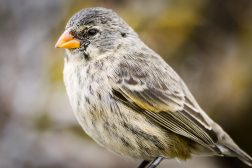pace
1. A single movement from one foot to the other in walking; a step.
2. The length of a step in walking or marching, reckoned from the heel of one foot to the heel of the other; used as a unit in measuring distances; as, he advanced fifty paces.
Ordinarily the pace is estimated at two and one half linear feet; but in measuring distances be stepping, the pace is extended to three feet (one yard) or to three and three tenths feet (one fifth of a rod). The regulation marching pace in the english and united states armies is thirty inches for quick time, and thirty-six inches for double time. The roman pace (passus) was from the heel of one foot to the heel of the same foot when it next touched the ground, five Roman feet.
3. Manner of stepping or moving; gait; walk; as, the walk, trot, canter, gallop, and amble are paces of the horse; a swaggering pace; a quick pace. To-morrow, and to-morrow, and to-morrow, creeps in this petty pace from day to day. (Shak) In the military schools of riding a variety of paces are taught. (Walsh)
4. A slow gait; a footpace.
5. Specifically, a kind of fast amble; a rack.
6. Any single movement, step, or procedure. The first pace necessary for his majesty to make is to fall into confidence with Spain. (Sir W. Temple)
7. A broad step or platform; any part of a floor slightly raised above the rest, as around an altar, or at the upper end of a hall.
8. A device in a loom, to maintain tension on the warp in pacing the web. Geometrical pace, the space from heel to heel between the spot where one foot is set down and that where the same foot is again set down, loosely estimated at five feet, or by some at four feet and two fifths. See roman pace in the note under def. 2. To keep, or hold, pace with, to keep up with; to go as fast as. In intellect and attainments he kept pace with his age.
Origin: OE. Pas, F. Pas, from L. Passus a step, pace, orig, a stretching out of the feet in walking; cf. Pandere, passum, to spread, stretch; perh. Akin to E. Patent. Cf. Pas, Pass.
Dictionary > Pace
You will also like...

Neurology of Illusions
Illusions are the perceptions and sensory data obtained from situations in which human error prevents us from seeing the..

Biosecurity and Biocontrol
This lesson explores the impact of biosecurity threats, and why they need to be identified and managed. Examples to incl..

Gene Action – Operon Hypothesis
Learn how the way genes control and determine every aspect of the body. This lesson uses lac operon as an example. ..
..

Plant Cells vs. Animal Cells
Plant cells have plastids essential in photosynthesis. They also have an additional layer called cell wall on their cell..

Darwin and Natural Selection
This tutorial investigates the genetic diversity in more detail. It also delineates how certain alleles are favored over..

Genetics and Evolution
Humans are diploid creatures. This means that for every chromosome in the body, there is another one to match it. Howeve..

